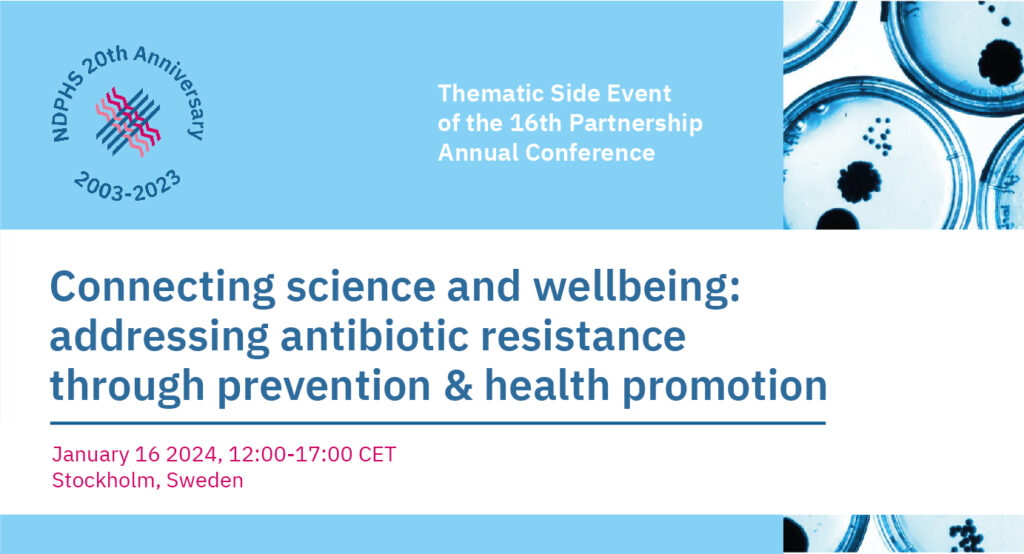World Antimicrobial Awareness Week: Global Collaborations and Collective Action
The collaboration of different sectors and the message that AMR is a fight we need to take together as it affects everyone is reflected in this year’s World AMR Awareness Week (WAAW) theme “Preventing AMR together” organized by the World Health Organization (WHO). AMR is the ability of bacteria to combat the action of one or several antimicrobials. Without effective antibiotics, we could return to the ‘pre-antibiotic era’, and it would be difficult, if not impossible to safely perform various medical procedures and treat infections caused by bacteria, parasites, viruses, and fungi.

European Centre for Disease Prevention and Control (ECDC) estimates that every year, over 35 000 people in the European Union, Iceland and Norway die from infections resistant to antimicrobials – an estimate that has increased in recent years. Read stories from people whose lives were dramatically changed by antibiotic resistance. The health burden of infections resistant to antimicrobials is comparable to that of influenza, tuberculosis and HIV/AIDS combined. Addressing AMR requires a One Health approach, meaning a holistic and multisectoral work where everyone collaborates to fight AMR.
In partnership with the WAAW, ECDC every year organizes the European AMR Awareness Day (EAAD). This year’s focus is on the targets established in the recently adopted Council Recommendation on stepping up EU actions to combat antimicrobial resistance in a One Health approach. The targets are an effective way to monitor progress and achieve goals related to the prevention and reduction of AMR up to 2030.
AMR is one of the thematic areas of the NDPHS and the topic has been prioritized by the Swedish Chairmanship of the Partnership. To address this public health threat, the work of the NDPHS AMR Expert Group increases knowledge and understanding of antimicrobial resistance among policymakers and healthcare professionals. On January 16, 2024, the thematic Side Event to the NDPHS Partnership Annual Conference “Connecting science and well-being: Addressing antibiotic resistance through prevention and health promotion” will investigate how preventive measures can be used to tackle this global health concern. The work of the NDPHS Expert Group on AMR in collaboration with the NDPHS Secretariat and the Swedish Chair is to foster a vital connection with initiatives like the EAAD and WAAW and to collectively drive informed policies and action. The EAAD and WAAW underscore the collective effort needed to combat antimicrobial resistance, resonating with the mission of the NDPHS, which advocates for knowledge sharing and joint research to address this global health threat.

AMR impacts every individual, urging us to act collectively in preventing its rise. By spreading awareness about AMR together, we can build a united front against the antimicrobial resistance challenge.
Text: Josefin Ogne, the NDPHS Secretariat